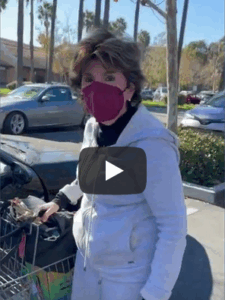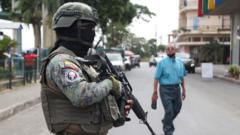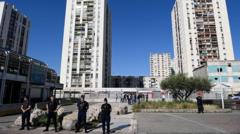In a chilling episode emblematic of the growing tide of violence in Ecuador, a mass shooting on Sunday night at La Clínica bar in El Empalme resulted in the deaths of 17 individuals, including a 12-year-old boy. This incident, detailed by the country's attorney general's office, also left 14 others injured.
According to Police Major Oscar Valencia, the assailants, using two pickup trucks, unleashed a barrage of gunfire indiscriminately at patrons with both pistols and rifles. The tragedy escalated when they targeted another group as they attempted to escape. Disturbing accounts revealed that the young boy succumbed to his injuries after fleeing more than a kilometer from the scene.
Local media reports depict a grim scene, with numerous bodies visible in the street and covered in white sheets. Investigative teams identified over 40 pieces of ballistic evidence, signaling the level of violence unleashed during the attack. Eyewitness accounts indicated that the attackers shouted "active wolves," a likely reference to a local gang entrenched in the struggles over drug trafficking routes. The Guayas region has increasingly become a battleground for drug traffickers vying for power.
Notably, this incident follows closely on the heels of another shooting, where nine individuals were killed in a pool hall in the coastal resort of Playas, also located in Guayas. Officials described those victims as "collateral victims," not intended targets.
In response to the spiraling violence, President Daniel Noboa initiated a crackdown on organized crime last year. Reports suggest that Ecuador has become one of the most dangerous countries in the region, with a homicide rate of 38 per 100,000 individuals in 2024. Official figures indicate that in the first five months of 2025 alone, Ecuador recorded over 4,000 homicides.
This surge in violence correlates with Ecuador becoming a critical transshipment point for global cocaine distribution, with nearly three-quarters of the world’s cocaine production passing through its borders. Recently, the extradition of a notorious drug lord, known as 'Fito', to the United States further underscores the international implications of the country's internal strife regarding drug-related violence.
According to Police Major Oscar Valencia, the assailants, using two pickup trucks, unleashed a barrage of gunfire indiscriminately at patrons with both pistols and rifles. The tragedy escalated when they targeted another group as they attempted to escape. Disturbing accounts revealed that the young boy succumbed to his injuries after fleeing more than a kilometer from the scene.
Local media reports depict a grim scene, with numerous bodies visible in the street and covered in white sheets. Investigative teams identified over 40 pieces of ballistic evidence, signaling the level of violence unleashed during the attack. Eyewitness accounts indicated that the attackers shouted "active wolves," a likely reference to a local gang entrenched in the struggles over drug trafficking routes. The Guayas region has increasingly become a battleground for drug traffickers vying for power.
Notably, this incident follows closely on the heels of another shooting, where nine individuals were killed in a pool hall in the coastal resort of Playas, also located in Guayas. Officials described those victims as "collateral victims," not intended targets.
In response to the spiraling violence, President Daniel Noboa initiated a crackdown on organized crime last year. Reports suggest that Ecuador has become one of the most dangerous countries in the region, with a homicide rate of 38 per 100,000 individuals in 2024. Official figures indicate that in the first five months of 2025 alone, Ecuador recorded over 4,000 homicides.
This surge in violence correlates with Ecuador becoming a critical transshipment point for global cocaine distribution, with nearly three-quarters of the world’s cocaine production passing through its borders. Recently, the extradition of a notorious drug lord, known as 'Fito', to the United States further underscores the international implications of the country's internal strife regarding drug-related violence.

















